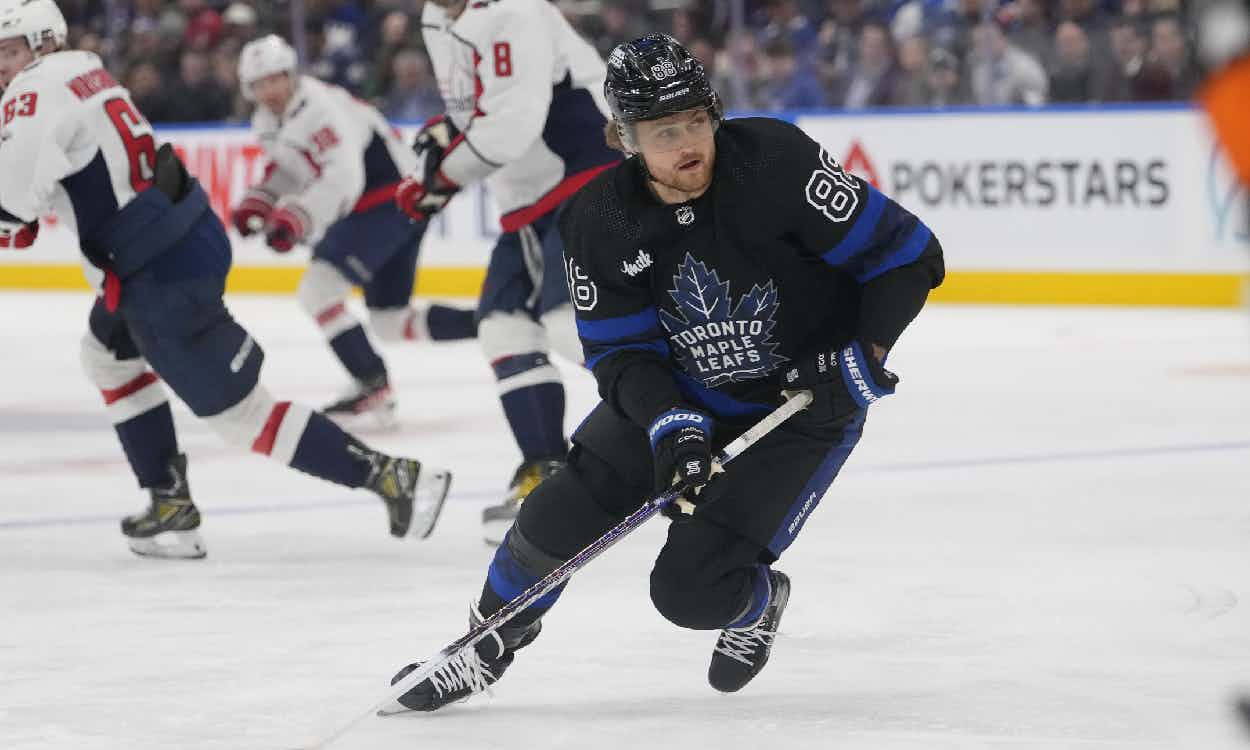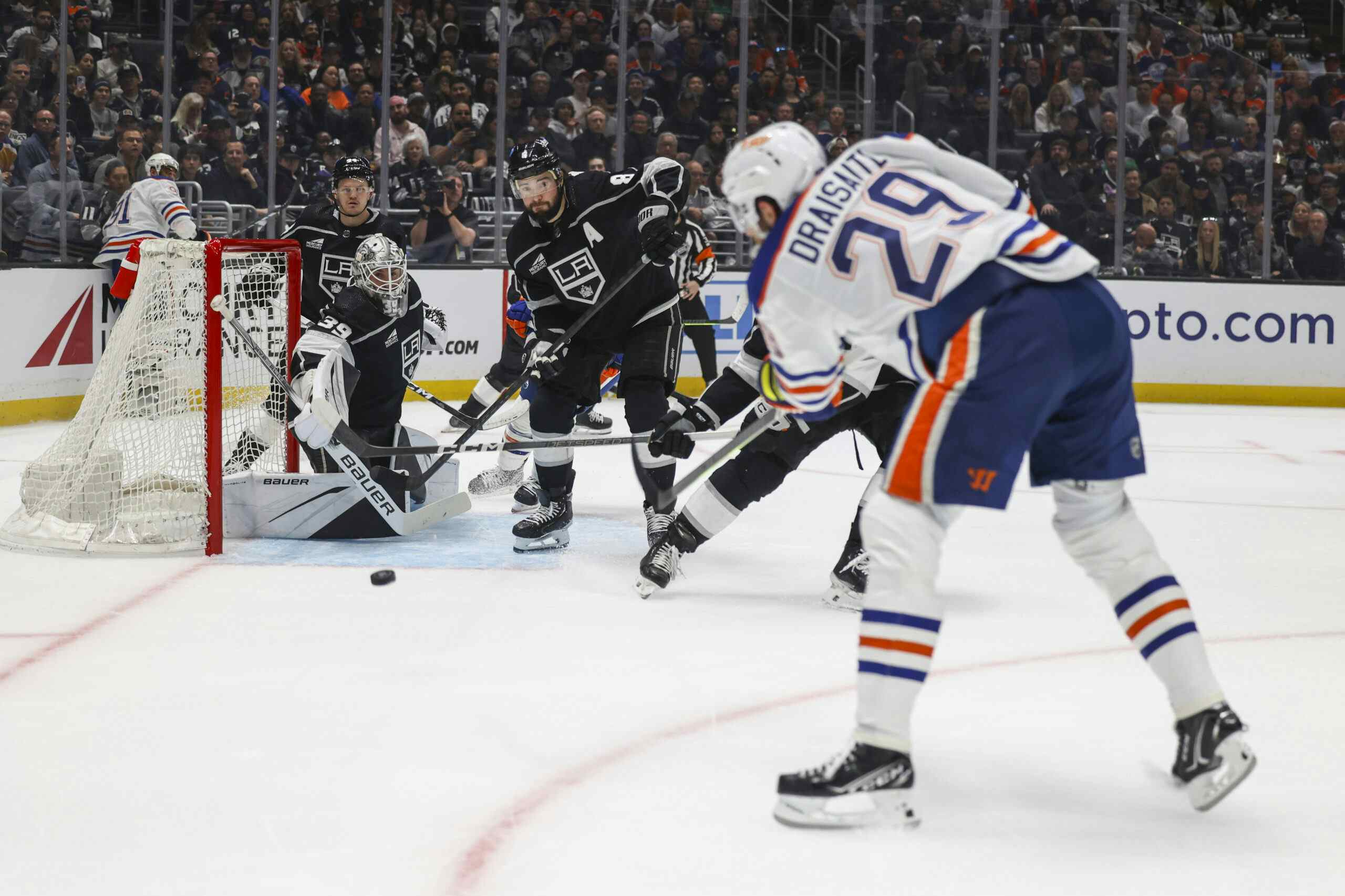The Red Menace

Oilers fans are, as has been noted here and myriad other places, in an interesting position. If the team loses, it does a better job of securing the second overall pick. If the team wins enough between now and the end of the season, they could conceivably slide out of the draft lottery entirely.
One thing that seems to be making it easier for fans is the so-called “Russian Factor.” The consensus top pick in this year’s draft is Nail Yakupov. The likely second pick – though there is some debate on this – is Mikhail Grigorenko. For many fans, that makes it easy to drop down – they want to see the Oilers pick a defenseman anyway, and they really would prefer the Oilers not draft a Russian.
This perspective is not unique to Oilers fans, or for that matter even to fans. The NHL has come a long way since the days when Sergei Fedorov and Pavel Bure were getting picked up for a song at the league’s annual Entry Draft. Of course, back then the fear was that the Russians couldn’t get out of the Soviet Union; today the fear is that they’d rather play for millions in the KHL than ride buses in the AHL or earn six figures on a three-year entry-level deal.
The KHL is a valid concern: Russia has poured money into the league, and done a good job of retaining their home-grown talent. Other concerns, however, are less valid.

For whatever reason, boasting a Russian name makes any player more vulnerable to accusations of being selfish or petulant or sporting a bad attitude. An alien, studying films of hockey broadcasts could be forgiven for thinking that an “Enigmaticrussian” is a human nationality.
And to be sure, there are examples. Alex Ovechkin is regarded by some as a partier; the pending UFA eligibility of Alexander Semin is openly talked about by some Caps fans as “addition by subtraction.” Ilya Kovalchuk was scratched by former Devils head coach John MacLean after supposedly being late for a team function. And of course, Alexander Radulov earned disdain for the way he walked away on his entry-level contract to earn many multiples of his salary more in the KHL.
There are two problems with this: first, in many cases the difficulties attached to Russian players in the NHL are overstated; second, when other players do these sorts of things it doesn’t automatically feed into perceptions about people of their nationality.

The second point is a big one. When Ray Emery gets exiled to Russia because of concerns about his professionalism, we don’t talk about those crazy partiers from Hamilton, Ontario. When an unflattering Dustin Penner picture turns up, or Kyle Wellwood fails a fitness test, or Dustin Byfuglien gets arrested at an interesting weight, we don’t hammer away on guys from Manitoba or Windsor or Minnesota. When Dany Heatley refuses to waive his no-trade clause to go to Edmonton, forcing the Senators to pay him a $4 million bonus, we don’t grumble on how intractable and money-hungry guys who grew up in Calgary are. There’s a long, long, long list of North American players with drug problems or alcohol problems or discipline problems or the problem of being born “Sean Avery.” Rightly, those problems don’t reflect on the person’s nationality; they reflect on the person.
It’s different with Russian players. If there’s a negative story about a Russian it reflects not just on the player but on Russian hockey players in general. Dany Heatley drops from 100 points to 50 points, and there’s a problem with Dany Heatley. Alexander Ovechkin drops from 100 points to 65 points, and there’s a problem with the Capitals’ Russian captain. Sidney Crosby sits out much of the season with concussion problems, and he’s playing it safe, setting a sterling example of how hockey players should behave after suffering a head injury. Andrei Markov sits out much of the season while recovering from multiple knee surgeries, and we hear barely veiled barbs about intestinal fortitude and ‘really, another setback? How surprising.’
It doesn’t matter that Evgeni Malkin is leading the league in scoring by a mile. It doesn’t matter that Pavel Datsyuk is arguably the best two-way player in the NHL, or that Sergei Fedorov was before him. It doesn’t matter that Dmitri Yushkevich played through everything – and begged to play through a life-threatening blood clot – in hockey’s largest media market. The different standard remains.
In some ways, it’s hard to blame people who have this perception of Russian players – it isn’t like the hockey media doesn’t perpetuate it. Besides that, we don’t see Russian grinders – because they’re typically playing at home, for more money, in a country where they can speak their own language and live in a familiar culture. All we see is the top-end talent, and when that talent fails it’s perceived as a lack of will rather than something else.
There’s no evidence, of course, that Canadians would do any better on the whole if the situations were reversed. In fact, there’s evidence to the contrary – during the lockout Kazan Ak-Bars, one of the wealthiest KHL clubs, went out and recruited NHL stars. For their troubles they saw Vincent Lecavalier (30GP – 7G – 8A – 15PTS) outscored by Ruslan Salei and Jaroslav Hlinka and Dany Heatley (11GP – 3G – 1A – 4PTS) play the role of a poor man’s Alexei Simakov.

Regardless, Russian hockey players have a given reputation, among some fans, media, and probably the guys coaching and managing teams too. And that leads to regrettable situations where folks would rather not see their team take a chance on a given draft-eligible player, simply due to his nationality. Jason Bonsignore doesn’t work out and we’re still fine with seeing Americans drafted; Alexei Mikhnov doesn’t work out and the Oilers better stay clear of the Red Menace.
Recent articles from Jonathan Willis





